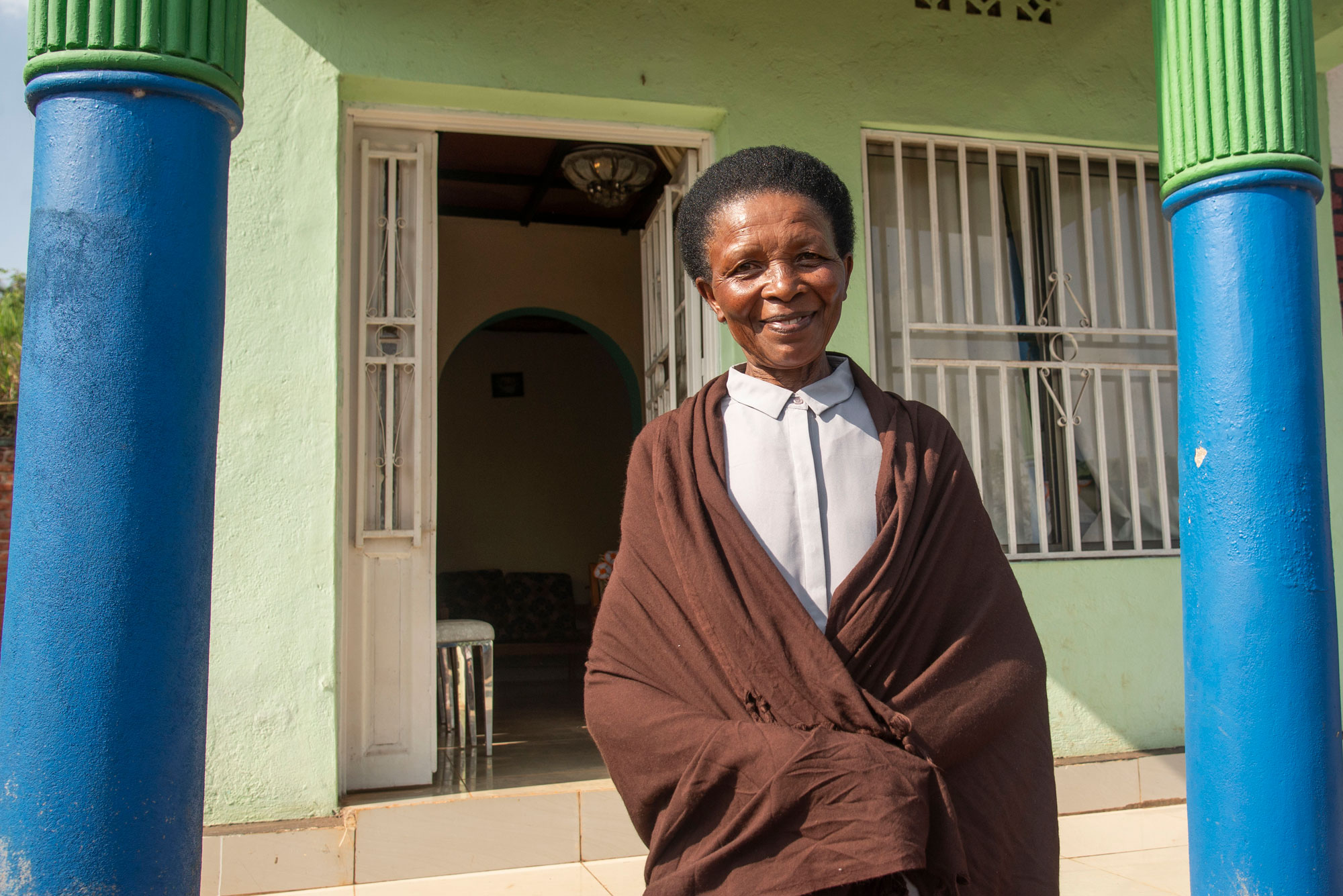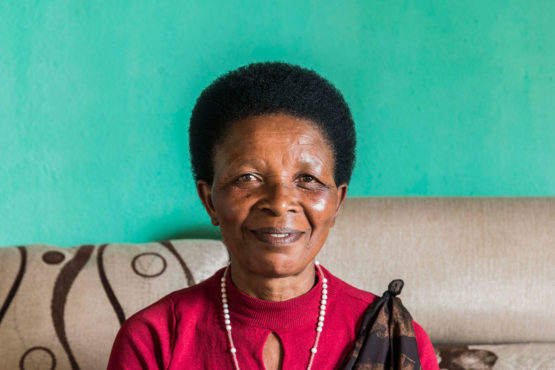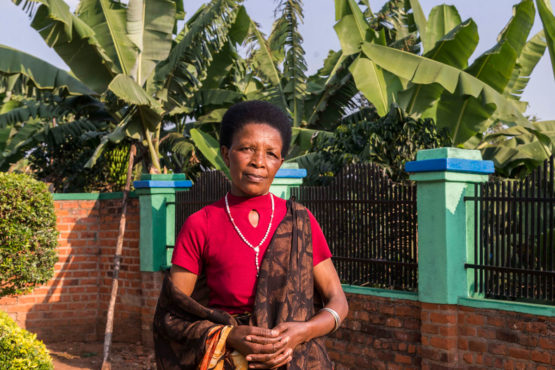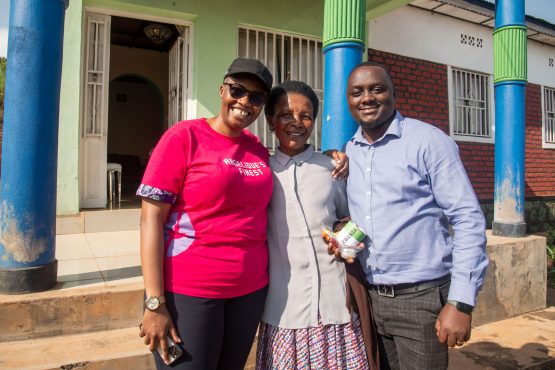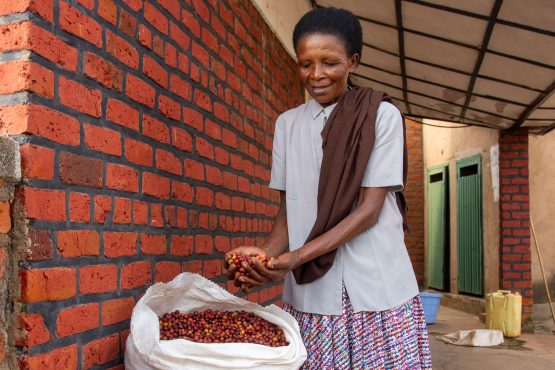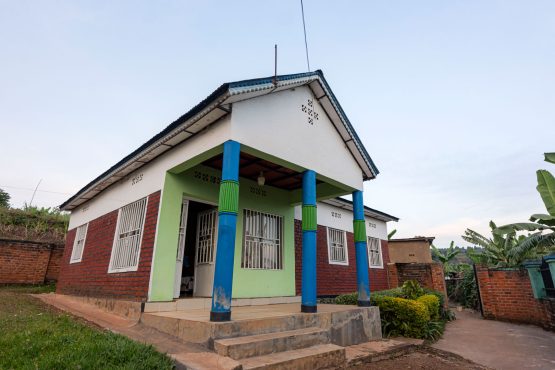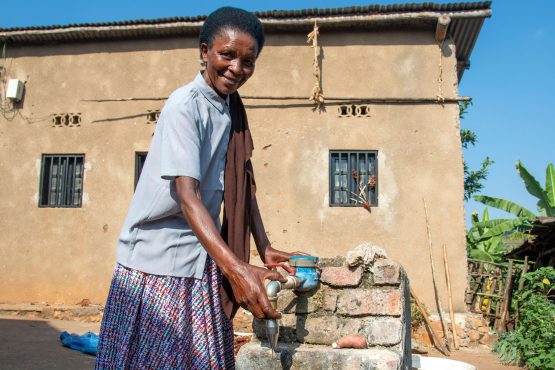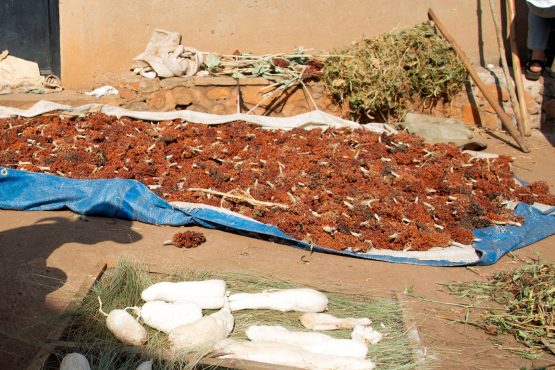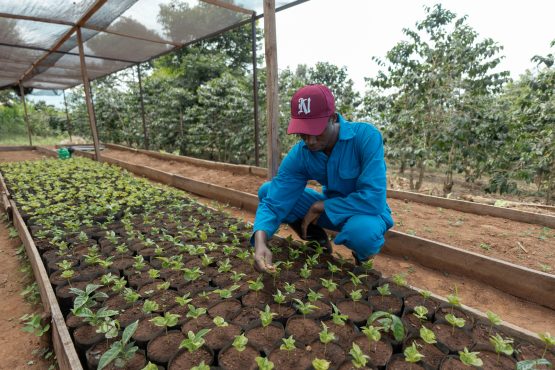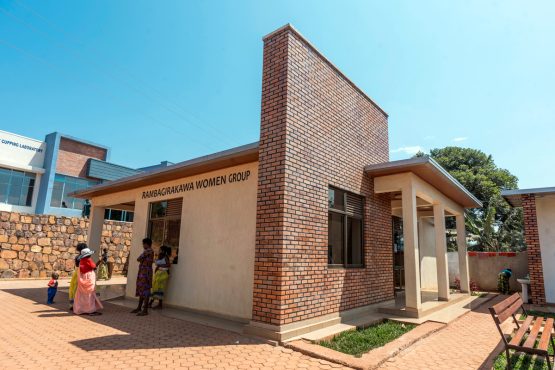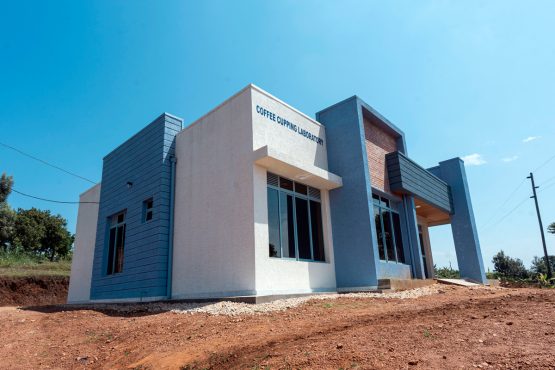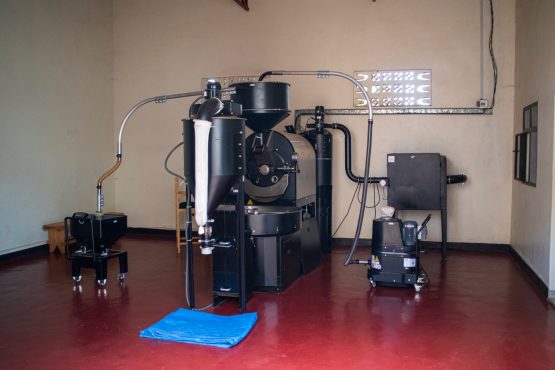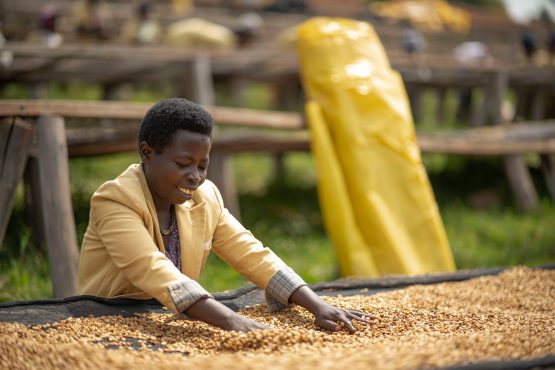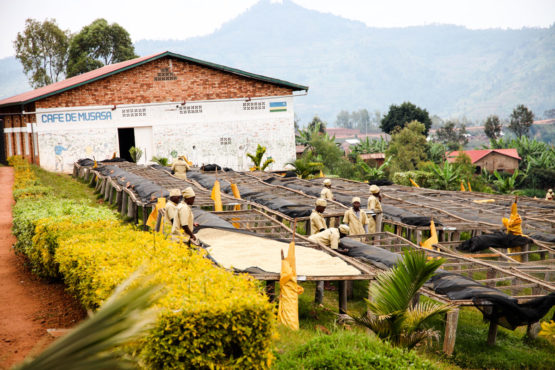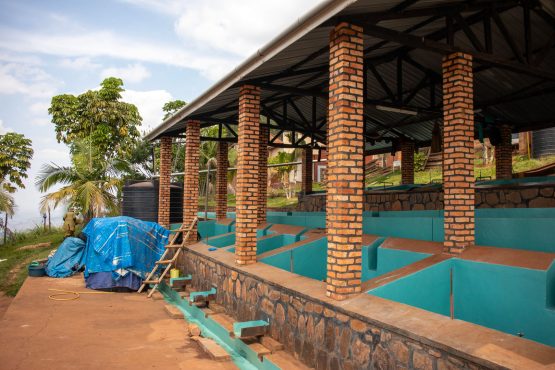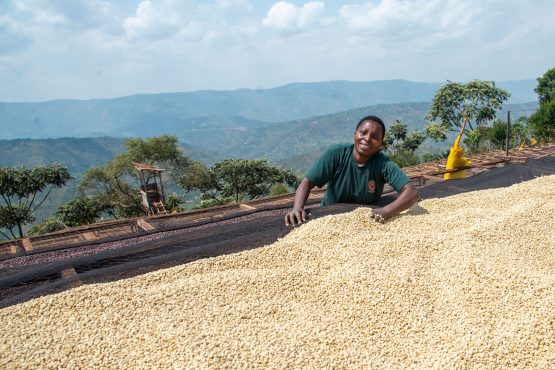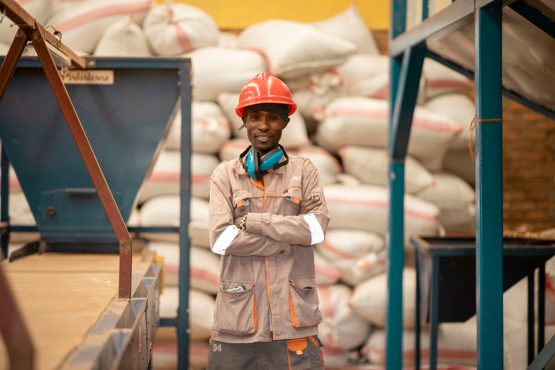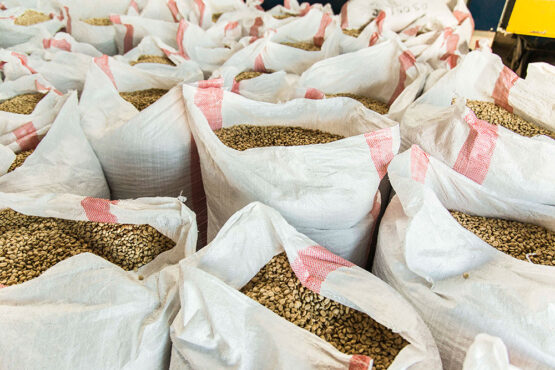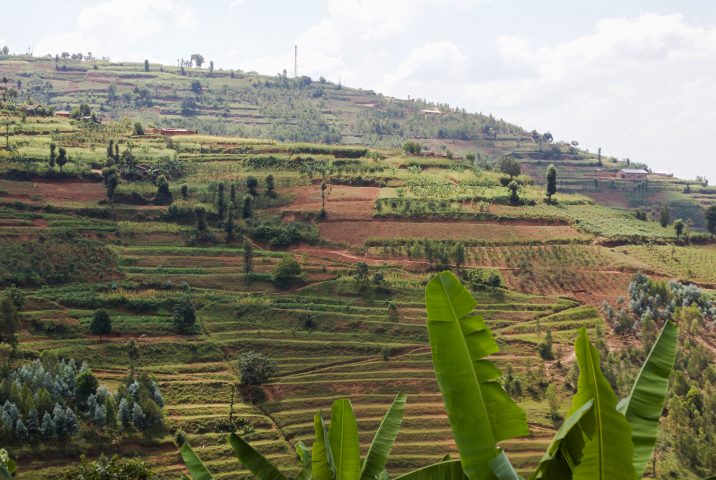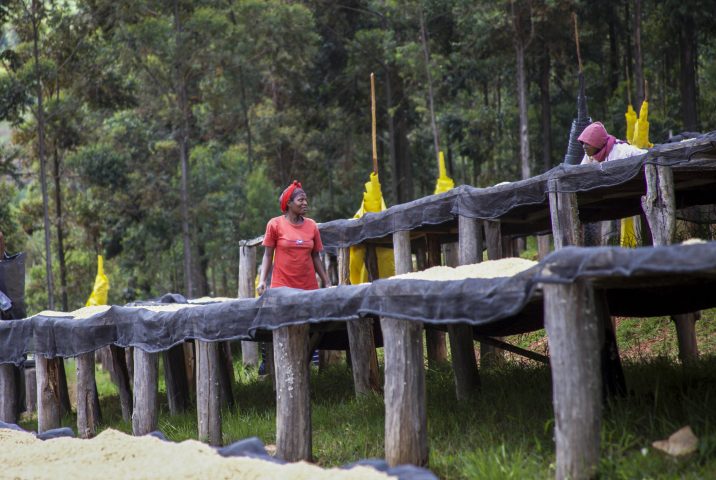Marie Bedabasingwa
Crisp and juicy, with Golden Delicious apple, lemon lime and milk chocolate. Great clarity and balance.
It is very rare to be able to get a coffee that is traceable back to a single producer in Rwanda, so we feel extremely fortunate to be able to share this special lot from Marie Bedabasingwa.
Most of the coffees we source from Rwanda are traceable back to a washing station, or sometimes a farmer group. Typically, washing stations in Rwanda receive cherry from hundreds (and sometimes thousands) of farmers who own very small plots of land – on average less than a quarter hectare, with just 300-600 coffee trees. Separation of such tiny lots is expensive and impractical, so the large majority of coffees are processed as a mixed lot from multiple producers. Typically, lots are separated as day lots (ie. cherries that were all picked on the same day) rather than by a single farm or producer group.
Single producer micro-lots like this one are difficult to access, especially from such a small producer. One of the reasons this lot separation is possible is that Marie is a member of the Dukunde Kawa Cooperative, who operate their own dry mill, where they can process smaller lots individually, whilst minimising cost and maintaining excellent quality standards.
Marie has worked in coffee for nearly five decades, establishing her farm with her husband in 1976. The pair also kept a small shop in town, which Marie’s husband described as investment for their future. Tragically, in 1994 Marie lost her husband and two eldest children during the horrific Rwandan genocide and was faced with the responsibility of caring for her five surviving children and grandchild. Armed with courage and determination, Marie sold the shop and invested her savings into her farm with the goal of making a living out of coffee growing.
Before the establishment of cooperatives and centralised washing stations, coffee production was extremely arduous for Rwandan coffee farmers. Processing was labour-intensive and lengthy, with very little equipment, training or resources available to rural farming communities. Coffee cherries were depulped by hand using stones and parchment was dried at farm level, before being sold to a middleman or ‘broker’ who would then on sell the coffee to traders or exporters based in Kigali. Not only did this result in a long and challenging harvest season for individual farmers, it also denied them any leverage for negotiating prices to achieve a fair and reliable income.
With the forming of cooperatives like Dukunde Kawa, farmers were provided with the support, education and resources necessary to adopt better farming practices, and processing moved to centralised washing stations – where shared infrastructure, equipment and adequate labour both minimised the workload for individuals and dramatically improved the coffee’s quality.
As Rwanda’s coffee sector recovered through the cooperative movement, Marie joined Dukunde Kawa as one of its founding members. In her time with the co-op, Marie has transformed her life. Through Dukunde Kawa, she received trainings on the best agronomic practices to follow, helping her to improve her yields and earn enough money to raise her five children and orphaned grandchild. When they were still young, her children accessed education through post-genocide government programs that built schools in rural areas of Rwanda. Seeing them coming home on hot and sunny days, Marie established a goal: “Let me construct my own house so that my kids have shade when they return from school.” Since that day, Marie has invested an enormous amount of time, energy and earnings into her home, in which she takes great pride. Even after the children moved away to study at university and start their own families, Marie continues to work diligently on her coffee fields and invest in her home, recently connecting to the electricity grid and water mains.
At 69 years old, Marie has no intention of retiring just yet. Today, she owns 600 coffee trees and in 2023 she renovated her estate with another 150 trees. Each year she hires local, seasonal workers to help her pick and deliver a whopping 80,000kg of fresh cherry to Ruli washing station. Hiring staff requires more capital, which can be challenging, but Marie has committed to the people who work for her because “the team has been together for a long time.” At the farm, Marie also grows maize, beans, sweet potato, and banana.
When the Rambagirakawa women’s group was established at the cooperative in 2012, Marie was one of the first members to join. Through the group, Marie has received social support from the other women members, who all work together in a communal coffee plot and share in the profits it earns. In the years since Rambagirakawa was formed, they have expanded in number and influence at the cooperative, allowing many of the co-op’s women to prosper financially and grow in confidence. When we asked Marie what being a part the group meant to her, she told us that “[it] has shown me that even the impossible can become possible!”
During our most recent visit, Marie told us she regards her coffee farm and subsequent prosperity as fulfilling the legacy of her husband. She shared that by supporting herself and her children independently, she has rebuilt the home, business and family life they once shared, while also avoiding the stigma of being a widow (she explained that in Rwanda, widows are sometimes regarded as a burden to their community). Her work and her home affords her a unique standing and respect in her community. A deeply religious woman, Marie sees this ability to rebuild as a miracle.
ABOUT RULI WASHING STATION
Ruli sits at 1,920 meters above sea level, overlooking a beautiful landscape of rolling green hills and rich, red earth. A total of 1756 farmers (1104 men, 652 women) deliver cherry to the washing station, which employs 36 permanent staff and increases by another 222 seasonal staff during the harvest period.
The area surrounding Ruli has mineral-rich soil and a lush environment that is well suited to specialty coffee production. Typically, farms are situated between 1,800 to 2,100 meters above sea level. Coffee is grown as a cash crop, alongside subsistence food crops like maize, beans and sorghum and some livestock like goats and chickens. Cows are also an important asset to a farming family. Besides having practical advantages – like providing milk and yoghurt to feed the family, producing excellent manure for the coffee farms, and being an opportunity for additional income – they are also a traditional symbol of wealth and status in Rwanda.
The washing station was established in 2003 and is the largest of Dukunde Kawa’s washing stations. It serves as the head office for the cooperative’s management team and the site also encompasses the cooperative’s dry mill and its dairy operations. The property is also the site of the Rambagirakawa community room and Dukunde Kawa’s cupping lab, nursery and model farm. Recently, the cooperative decided to expand their business by establishing a commercial roastery that supplies coffee to restaurants and hotels across town, with all activities carried at a building also located in Ruli.
Quality control operations at Ruli are overseen by Emerthe Mukamurigo, who has held this position since 2014, while the day to day is managed by Philomene Nyirabantu. Ruli is Rainforest Alliance certified, UTZ certified, and Fair Trade certified. These certifications help the growing cooperative find different markets for the coffee. “We were already doing a lot of the things that were required for these certifications”, Isaac (the executive secretary of the cooperative at the time) explained, “We are always trying to be the best cooperative we can be. Getting the certifications has helped highlight what we are doing well and helped us raise our standards in other areas.”
Head here to learn more about the work of Dukunde Kawa in Rwanda.
PROCESSING AT RULI WASHING STATION
The team at Dukunde Kawa takes a huge amount of care in processing its coffee. All members of the cooperative are trained to only select ripe coffee cherries from their trees.
- On delivery, the cherries are inspected and sorted by hand to ensure only the very ripest cherries are processed. Farmers do the selecting, and receive the highest income from the ripest, healthier fruit. The remainder of their crop still gets purchased by the co-op, at a lower price, to be processed and sold for the internal market.
- Cherry is then sorted by weight (and any floaters are removed) by a Pinhalense machine that the washing station staff affectionately have named the ‘Umupolisi’ (police person). By using a machine, rather than a clerk, Dukunde Kawa are more transparent with contributing growers about which fruit gets processed. Coffee is then pulped on the same day – usually in the evening – using a mechanical pulper that divides the beans into three grades by weight, with the heaviest, A1, usually having the highest cup quality.
- After pulping, the coffee is pre-washed and fermented overnight for around 12–18 hours and then graded again using floatation channels that sort the coffee by weight. The wet parchment is the washed a second time and left to ferment for a further six hours — with the goal of removing as much mucilage as possible without using machinery that may accidentally crush or damage the beans.
- As with most washing stations in Rwanda, women do the majority of hand-sorting. This takes place in two stages – on the covered pre-drying tables and on the drying tables. Washed beans are moved from the wet fermentation tanks onto the pre-drying tables, where they are intensively ‘wet sorted’ under shade for four hours. The idea is that greens (unripe beans) are still visible when the beans are damp, while the roofs over the tables protect the beans from the direct sunlight.
- Next, the beans are moved onto the washing station’s extensive raised drying tables (‘African beds’) for around two weeks, where they are sorted again for defects, turned regularly and protected from rain and the midday sun by covers, ensuring both even drying and the removal of any damaged or defective beans. During this period the coffee is also turned several times a day by hand to ensure the coffee dries evenly and consistently.
- After reaching 11-12% humidity, the coffee is then transported to Dukunde Kawa’s purpose-built warehouse prior to final dry-milling and hand sorting at the cooperative’s dry mill.
- Located in Ruli, Dukunde Kawa’s dry mill has the capacity to process one full container of coffee a day — and combines the use of technology with meticulous hand sorting to ensure only the best beans are bagged. Before being loaded for export, Rwanda’s National Agricultural Export Development Board also inspects and samples the prepped parchment.
WHY WE LOVE IT
We have purchased Marie’s coffee every year since falling in love with it whilst cupping in Rwanda in 2019. We are excited to continue working with Marie in the future and as she grows her business further. This year’s lot is has great milk chocolate sweetness and crisp acidity, with Golden Delicious apple and lemon lime.
